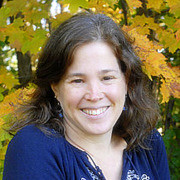Tu B’Shevat: New Year of the Trees
Tu B’Shevat: A Birthday Celebration for the Trees
Last month, I wrote about the Hebrew calendar and the lunar months that make up the Jewish year. The month of Shevat began with the last crescent moon, and features one of my favorite holidays of the entire year – Tu B’Shevat (which means, literally, the 15th of Shevat.)
Tu B’shevat is best known as the New Year of the Trees, or the Birthday of the Trees. Why, you might ask, do trees need their own New Year, and why would all trees celebrate one birthday no matter when they were planted? The primary reason is that there are several Biblical commandments that require knowing a tree’s age. The ancient law of Orlah prohibits eating any tree-grown fruit until it hits the ripe old age of four; agricultural tithes also depend on the age of a tree. Rather than expect people to keep track of each individual tree’s birthday, the Rabbis determined that all trees would share one birthday – the 15th of Shevat – for the purpose of these calculations.
In Medieval Times, Jewish mystics, knows as the Kabbalists, recognized Tu B’Shevat as an opportunity not just for running the numbers, but for honoring and celebrating trees (and by extension, all of creation.) They developed a Tu B’Shevat seder, not unlike the Passover seder, in which participants would eat and drink a variety of symbolic foods that grow on trees while reciting prayers and studying ancient texts. In recent years, the Tu B’shevat seder has become a popular and eclectic tradition. Some seders still delve into the complex and esoteric themes of the ancient kabbalists. Many seders focus instead on the theme of environmental stewardship, while others are more simple affairs – a chance to eat, sing and tell stories while celebrating a love of trees. There are many seders for all ages taking place in the area this month. If you would rather try your own, there are some wonderful resources are compiled at the website of Hazon, a Jewish organization dedicated to sustainability. I especially loved this animated version of a traditional story about Honi the Circle Maker and the the importance of planting for future generations:
If you are looking for other ideas for how to honor the birthday of the trees, I’ve offered 15 suggestions over at Homeshuling.
In Israel, Tu B’shevat falls just as the rainy season is coming to an end and the almond trees begin to bloom. In New England, Tu B’Shevat falls in the dead of winter. Nevertheless, it is a great opportunity to start keeping an eye open for one of our most beloved gifts from trees – the maple sap which will soon be rising and boiling up at sugar shacks all over Western Massachusetts. When I write next month’s post, I hope to be baking up treats for the holiday of Purim with fresh maple syrup!
ABOUT THE AUTHOR
Amy is a Kindergarten teacher at Lander-Grinspoon Academy in Northampton, MA, and the author of two children’s books, A Mezuzah on the Door, and The Shabbat Princess. She writes the blog Homeshuling for Beliefnet, and a monthly column for the Jewish parenting site Kveller.com. Amy lives in Northampton, MA with her husband and two daughters.
 Hilltown Families
Hilltown Families 






























